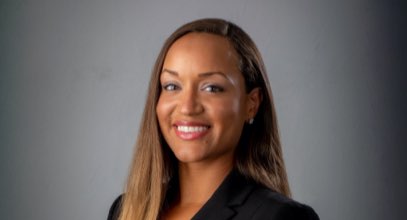No one enjoys spending extra time at the airport because flight delays have kept their plane grounded, but frequent fliers know to expect these occasional interruptions in their travel schedules. Cancelled airline flights and delays can cause major headaches, but the decision is typically made out of concern for the safety of the passengers and crew aboard the plane.
“Flights can be cancelled due to weather, natural disasters, and mechanical issues,” says Ed Martelle, a spokesman for American Airlines. “In some cases, they can be caused by crew time issues.”
Martelle says every area of the country experiences flight delays at some point.
“This year alone we've had snow events in Texas and the Northeast, big storms in Chicago and New York, hurricanes in the Caribbean, and, just last night, high wind conditions that forced diversions for planes bound to Los Angeles,” Martelle says. “Every part of the country has times of the year when they are severely impacted by weather events.”
Martelle says that some airports are more equipped to handle flight delays than others.
“Delays at slot-controlled [or] limited operations airports, [such as] O'Hare, LaGuardia, JFK, and Washington National, can be more disruptive because flights can't be easily rescheduled,” Martelle says.
Each airline establishes their own policies for assisting delayed customers.
Karin Bogue, a business law instructor at South University — Online Programs, says flight delays lead to postponed boarding, flight cancellations, and planes loaded with passengers parked on the tarmac.
“Passengers have few options when stranded in a plane that is parked on the tarmac,” Bogue says. “These long delays create shortages of water, food, and fresh air, along with increased impatience of passengers.”
Due to increasing instances of delays on the tarmac and other airline customer service issues, Bogue says the Department of Transportation (DOT) implemented regulations in April 2010, and revised them in August 2011, to reduce delays and provide more protection for consumers. As a result, most U.S. airlines are now prohibited from allowing a domestic flight to remain on the tarmac for more than three hours.
Bogue says the only exception to this rule is if the pilot determines there is a safety or security reason keeping the plane from returning to the gate, and the passengers are allowed to deplane, or if air traffic control advises the pilot that returning to the gate or another location to allow the passengers to deplane would cause a considerable disruption to airport operations.
Bogue says regulations also require airlines to provide food and water to passengers after sitting on a plane for two hours, without being able to deplane, unless there are safety or security issues surrounding the incident. The airline must also provide functioning lavatories and medical attention to any passengers in need. Passengers must also be updated on the status of the delay once every 30 minutes, when sitting aboard a plane parked on the tarmac.

There are no federal laws limiting the length of other types of flight delays, Bogue says. Carriers are required to notify passengers of known delays, those longer than 30 minutes, and cancelled airline flights within 30 minutes of becoming aware of the change in status, she says.
“The status information must appear at the boarding gate for the flight, on the carrier’s website, and on the phone reservation system,” Bogue says.
Making the Call on Flight Delays
The decision to delay a flight doesn’t necessarily come from one source.
Most delays involve either maintenance or weather-related incidents, but can also be caused due to waiting for the plane of passengers arriving on a connecting flight to land at the airport, says a commercial airline pilot.
“Sometimes a perfectly good plane can be delayed if it is determined that other inbound flights with connecting passengers have been delayed and waiting just a short time for them will allow them to make that flight, without affecting other connecting flights downstream,” the commercial airline pilot says. “Sounds difficult to juggle, but it really is considered and evaluated.”
The commercial airline pilot says he doesn’t experience flight delays very often.
“Normally, things run rather smoothly,” says the commercial airline pilot. “I’ve had almost zero delays caused by the crew, [and] very few even caused by maintenance issues.”
He says most maintenance issues that arise are easily fixable, but if something major occurs, such as engine changes, structural damage, or unknown leaks, a different plane and crew is usually assigned to the flight.
When delays do occur after passengers have already boarded the plane, the commercial airline pilot says the captain is typically responsible for informing passengers of the change in status.
“In the cases that I’ve experienced delays, all of my captains have explained the delay in the best terms that would clearly convey to the average passenger what is actually causing the delay,” the commercial airline pilot says. “When mechanical – without getting into engineering terms or FAA regulations – they will explain that a certain item needs replaced, checked, [or] inspected by maintenance before we can leave the gate, or if an ATC (Air Traffic Control) delay, [they] will explain that weather en route or at [the] destination has restricted our takeoff time to allow for a smooth arrival time.”
Costs of Cancelled Airline Flights
Bogue says airlines are not legally obligated to provide compensation to passengers on a domestic flight in the U.S. that has been delayed, but they are required to compensate passengers with reservations that have been bumped from the flight.
“Each airline establishes their own policies for assisting delayed customers,” Bogue says. “Check the terms and conditions, contract of carriage, or similar information for the specific airline.”
Bogue says airlines are more likely to provide accommodations if they are responsible for the delay, instead of a reason beyond their control, such as a weather event.
Even if a passenger was bumped from an earlier flight due to a cancellation, Bogue says they are not guaranteed a seat on the next available flight. This depends upon the terms and conditions of the airline, and the type of ticket purchased.
“For example, the DOT requires tickets be refunded within seven business days; however, that requirement only applies to refundable tickets,” Bogue says.
Regardless, Bogue says that most carriers do attempt to schedule passengers from cancelled airline flights on the next plane headed to their destination, if space is available.
“Sometimes, the airline may check for available seats with another carrier and endorse the original ticket to that carrier,” Bogue says. “The passenger may also request a refund for a canceled flight.”




